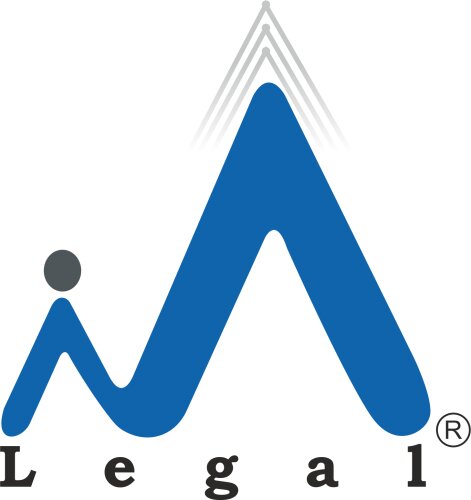Best Government Relations & Lobbying Lawyers in Pune
Share your needs with us, get contacted by law firms.
Free. Takes 2 min.
List of the best lawyers in Pune, India
About Government Relations & Lobbying Law in Pune, India
Government relations and lobbying involve the strategic interaction between organizations, businesses, and government entities. In Pune, as in other parts of India, this field primarily focuses on influencing public policy, regulation, and legislation. It is essential for companies and organizations seeking to navigate the political landscape, secure favorable outcomes, or address regulatory concerns. The legal framework governing these activities involves ensuring compliance with ethical standards and transparency requirements to prevent undue influence in political processes.
Why You May Need a Lawyer
There are several scenarios in which individuals or organizations may require legal assistance in government relations and lobbying:
- Compliance: Navigating complex regulations to ensure that lobbying activities are compliant with local and national laws.
- Policy Advocacy: Structuring and executing effective campaigns to influence government decisions or public policy.
- Regulatory Challenges: Dealing with changes in legislation or responding to governmental inquiries and investigations.
- Public-Private Partnerships: Facilitating negotiations and agreements between governmental agencies and private entities.
- Crisis Management: Managing legal risks and mitigating potential fallout from adverse governmental or regulatory actions.
Local Laws Overview
In Pune, the governing framework for government relations and lobbying involves understanding the broader national laws related to political advocacy and public affairs. Key aspects of relevance include:
- The Representation of the People Act, which outlines the conduct expected of lobbyists and political actors.
- The Companies Act, detailing how businesses can partake in political contributions and advocacy.
- Regulations by the Election Commission of India on permissible activities around election times.
- The Prevention of Corruption Act, ensuring that lobbying practices do not cross ethical or legal boundaries.
These laws are intended to create transparency, maintain integrity in governmental processes, and ensure accountable interactions between businesses and lawmakers.
Frequently Asked Questions
What is the role of a government relations lawyer?
A government relations lawyer advises clients on interacting with government entities, ensuring compliance with laws and ethical guidelines, and helping influence policy decisions through legal and reputable means.
Is lobbying legal in India?
Yes, lobbying is legal in India, but it requires careful adherence to ethical guidelines and transparency regulations to prevent corruption or undue influence.
What are common lobbying activities?
Common lobbying activities include meeting with policymakers, submitting comments on legislation, providing research and data to support policy arguments, and building coalitions to advocate for specific policy outcomes.
Do I need to register as a lobbyist?
Current Indian law does not mandate a formal registration system for lobbyists, unlike in some other countries. However, maintaining transparency and ethical conduct is crucial.
How do companies engage in lobbying?
Companies engage in lobbying by employing in-house specialists or hiring external agencies to represent their interests before government officials and policymakers.
What are the potential risks of lobbying?
Potential risks include reputational damage, legal challenges if regulations are violated, and ethical dilemmas that arise from opaque lobbying practices.
How does lobbying influence government policy?
Lobbying influences policy through informed advocacy, providing data and insights that help shape policy decisions, and facilitating dialogue between stakeholders and decision-makers.
Can non-profit organizations lobby?
Yes, non-profit organizations can lobby on behalf of their causes, but they must ensure that their activities align with their primary objectives and comply with relevant regulations.
What is the difference between lobbying and advocacy?
The primary difference lies in scope; lobbying is aimed directly at influencing specific legislation or regulation, while advocacy covers broader support for particular issues or policies without necessarily focusing on legislatures.
How can lobbying benefit a business?
Effective lobbying can lead to favorable regulatory outcomes, access to new markets through government partnerships, and improved business environments influenced by supportive policies.
Additional Resources
For those seeking more information on government relations and lobbying, the following resources may be helpful:
- The Ministry of Corporate Affairs: Provides guidelines on corporate involvement in political contributions and advocacy.
- The Election Commission of India: Offers resources on ethical practices around election-related lobbying activities.
- Local Chambers of Commerce: Often provide networking opportunities and insights into local governmental relations practices.
- Legal Aid Clinics: Offer guidance and legal support for understanding compliance and ethical obligations in lobbying.
Next Steps
If you require legal assistance in government relations and lobbying in Pune, consider the following steps:
- Research and identify law firms with expertise in government affairs and public policy.
- Schedule consultations to discuss your specific needs and challenges.
- Ensure the firm or lawyer you choose has a good understanding of local and national laws that affect lobbying efforts.
- Consider partnering with advocacy groups that align with your goals for additional support and insight.
- Stay informed about changes in legislation or policy that may impact your lobbying activities.
Lawzana helps you find the best lawyers and law firms in Pune through a curated and pre-screened list of qualified legal professionals. Our platform offers rankings and detailed profiles of attorneys and law firms, allowing you to compare based on practice areas, including Government Relations & Lobbying, experience, and client feedback.
Each profile includes a description of the firm's areas of practice, client reviews, team members and partners, year of establishment, spoken languages, office locations, contact information, social media presence, and any published articles or resources. Most firms on our platform speak English and are experienced in both local and international legal matters.
Get a quote from top-rated law firms in Pune, India — quickly, securely, and without unnecessary hassle.
Disclaimer:
The information provided on this page is for general informational purposes only and does not constitute legal advice. While we strive to ensure the accuracy and relevance of the content, legal information may change over time, and interpretations of the law can vary. You should always consult with a qualified legal professional for advice specific to your situation.
We disclaim all liability for actions taken or not taken based on the content of this page. If you believe any information is incorrect or outdated, please contact us, and we will review and update it where appropriate.














